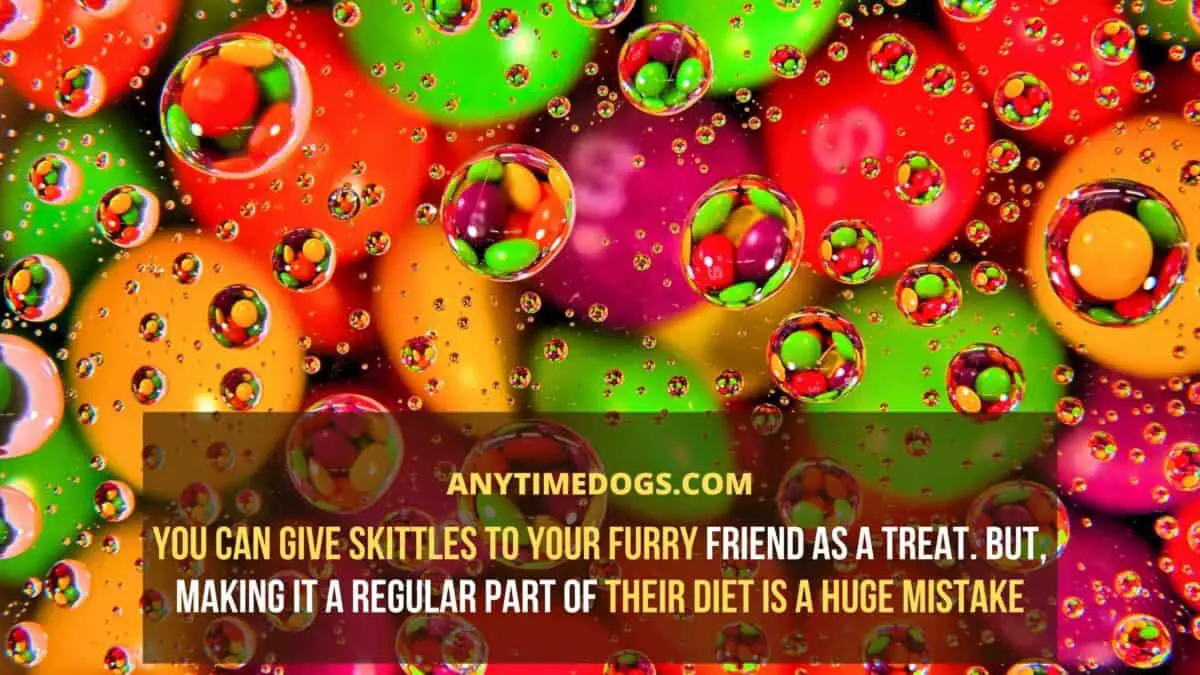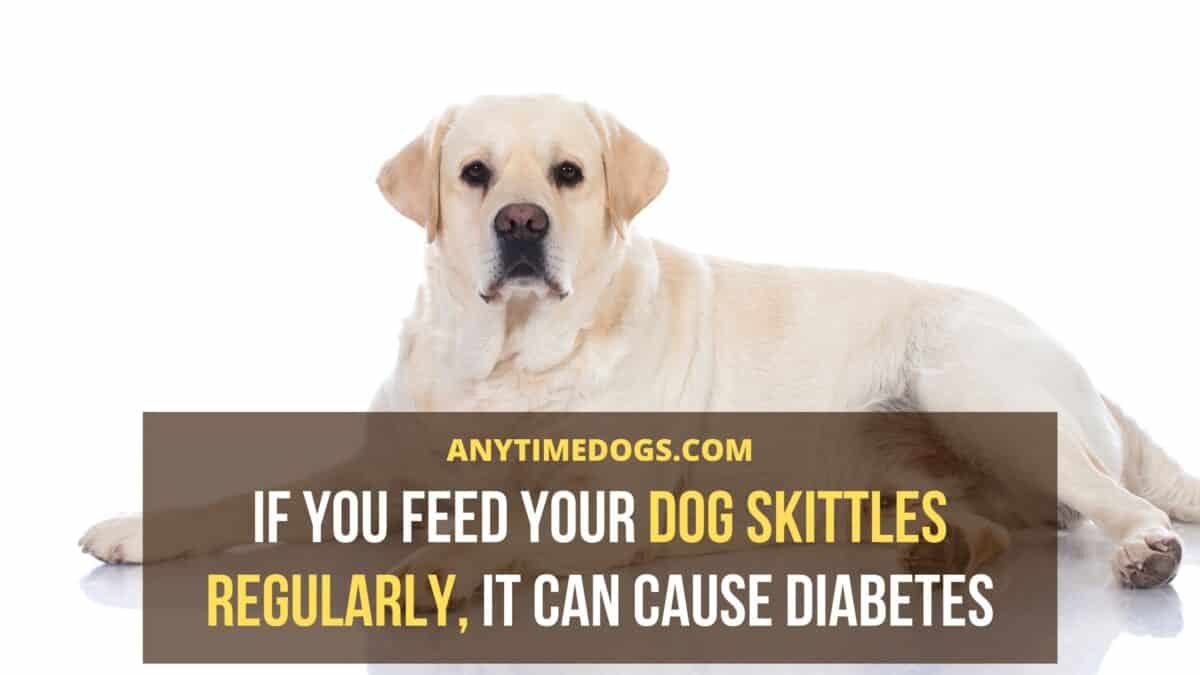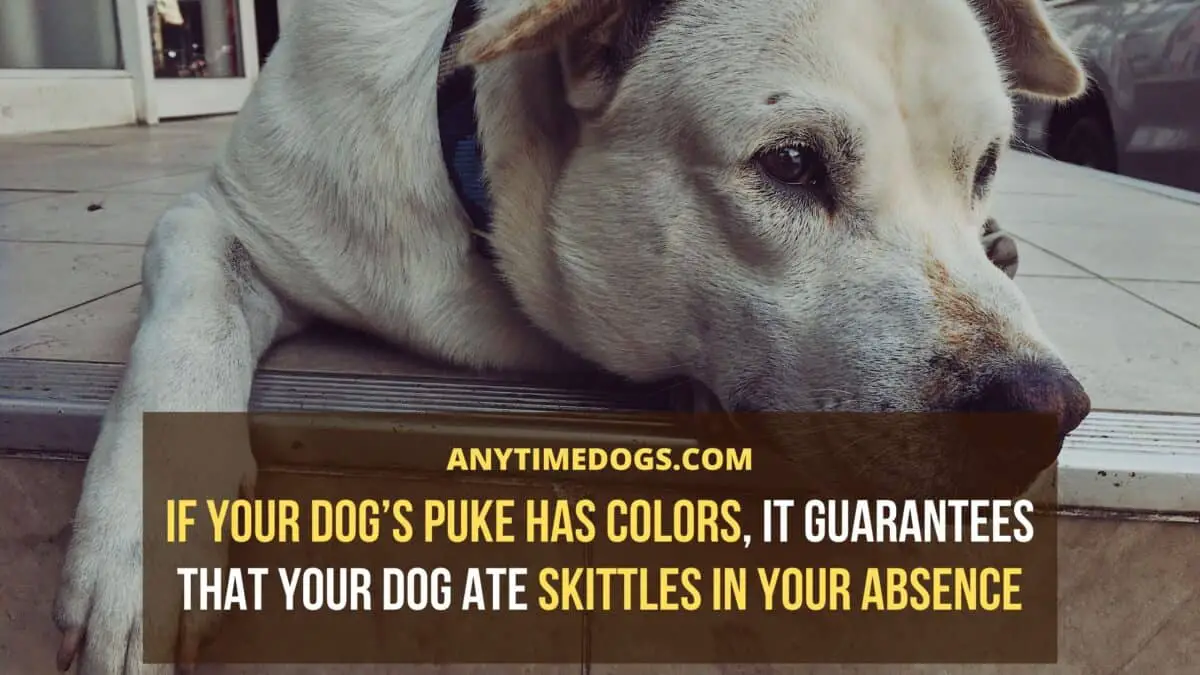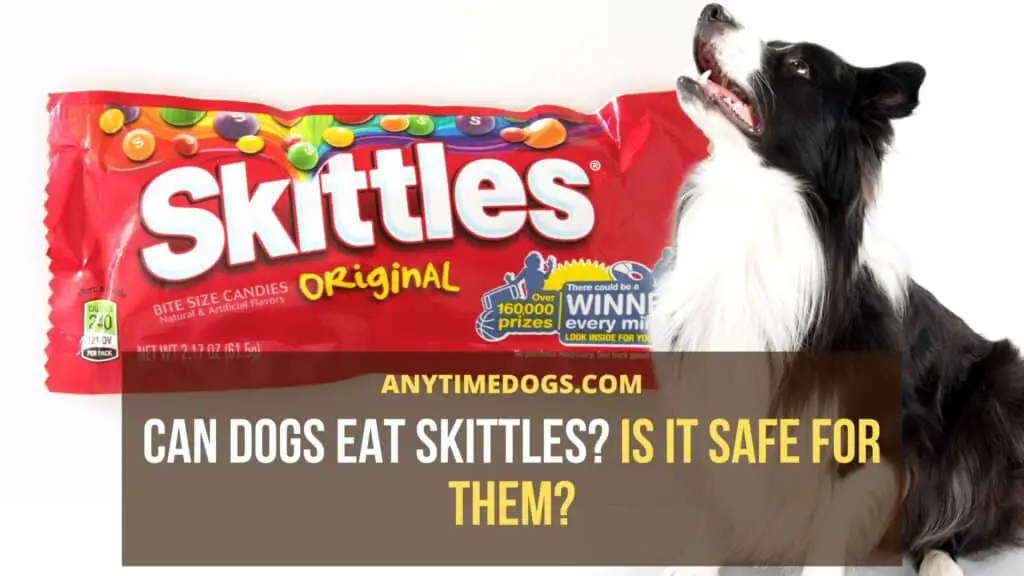Skittles are one of the most eaten candies around the world. The bright-colored candies have a unique taste that everybody loves. But can dogs eat skittles?
Skittles are not deadly for dogs but it contains ingredients which can be dangerous for your pup’s health. So, it is better to keep dogs away from skittles
Most of the food we eat is because of flavor and not health. And, after seeing your puppy’s face, we tend to share some with them. Skittles are one tasty treat that we give to dogs from time to time.
It is natural for dogs to want some of your food. But is it safe to feed your dog skittles? In this article, we will find the answer to this question.
Read below to find out!
What Do Skittles Contain?
Skittles are hard, fruity candy with the letter “S” typed on it. Like most candies, skittle contains gelatin, which makes a non-vegan product.
It contains the following ingredients:
- Corn syrup
- Hydrogenated palm oil
- Kernel oil
The above three ingredients make up 98% of the skittles. The rest 2% are:
- Tapioca dextrin
- Citric acid
- Modified corn starch
- Artificial and natural flavors
- A small amount of carnauba wax and sodium citrate
A 100 gram of skittles has the following nutritional value:
- Carbohydrates – 90.7 g
- Sugar – 76.4g
- Saturated fat – 3.9 g
- Sodium – 15.1 mg
- Vitamin C – 26 mg
Are Skittles Good For Dogs?
Skittles do not contain any ingredient which is toxic for dogs. However, some components are not healthy for your pup.

You can give skittles to your furry friend as a treat. But, making it a regular part of their diet is a huge mistake.
Skittles came into existence as human food. Even though it is not healthy for us as well, but, for dogs it can be more dangerous.
It contains sugar and corn syrup, which can deteriorate your pet’s health.
Cons Of Skittles For Dogs
Apart from skittles, there are many other options for your pooch. Because, if look at the nutritional value, it doesn’t provide many benefits to dogs who eat skittles.
Giving too much skittles contains the following health risk:
1) Obesity:
Skittles has a high amount of sugar. The corn syrup adds unnecessary calories that lead to your pooch gaining weight. Like skittles, sodas also have a high sugar count which isn’t good for dogs as well.
Obesity in dogs is a huge problem. Most of the owners think it is okay to feed them whatever they eat. However, this love can make the pup obese.
An overweight pup won’t be active than others. They also are at high risk of bone fractures and other problems.
2) Diabetes:
The tangy-sweet treat has high sugar content. It also has little nutritional value.

If you feed your dog skittles regularly, it can cause diabetes. The high sugar level in the bloodstream can damage the organs.
If your dog has diabetes, its body won’t produce enough insulin. It means that the pancreas is not fully working. They will start to have seizures, UTIs. In
3) Cardiovascular Diseases:
The main culprit behind unhealthy snacks is sugar. Not only it causes obesity but high triglyceride level too. This causes the blockage of arteries and eventually a heart attack.
Your pooch may have labored breathing, abdominal swelling, or excessive coughing. These are signs if they are suffering from heart problems,
How Many Skittles Should A Dog Eat In A Day?
It is difficult to tell the exact amount of how much your pooch should eat in a day. However, if you give them less than 10 grams, it won’t harm your canine friend. In Skittles, each bean weighs 1 gram. So, ten skittles for your pooch is enough.
It does contain vitamin C. But, there are other food options available for it. Giving skittles to your dog for the sole purpose of vitamin C isn’t a good idea.
Skittles have a sour taste, and sometimes your dog might enjoy it. It is your responsibility to keep a check on how much they are eating.
If your dog eats anything else after sour skittles, they might find it bitter. In this way, they might stay away from it.
Smaller dogs like Chihuahuas can get sick even with a small amount of skittles. However, larger breeds like Samoyed or Dachshund won’t.
Symptoms Of Overeating Skittles In Dogs
There might be times when you aren’t around, and your dog eats your stuff.
If you suspect your dog has eaten a full pack of skittles, he can become ill. Look out for the following symptoms in the next few hours.
- Vomiting
- Diarrhea
- Bloating
- Upset stomach
Moreover, if your dog’s puke has colors, it guarantees that your dog ate skittles in your absence. These symptoms might last a day or two. But, bloating can cause severe pain to your fur baby.

If your dog seems bloated, contact a vet ASAP. For other symptoms, you can wait for a day before contacting the vet.
It would help if you kept your favorite snack out of the canine’s reach. In this way, they will be out of trouble. And, you will have no stress too.
What To Do If Your Dog Is Choking On The Skittle Wrapper?
Animals are very different from humans. They don’t know what to eat and what to avoid.
Your pooch may enjoy eating the remnants of the wrapper. And, they might ingest the wrapper too.
Suppose you gave your dog some skittles. And, soon, there is no wrapper in sight. There are chances your dog might have eaten it.
You should immediately put your hand in the dog’s mouth. And, see if you can take the wrapper out. If you can’t do it, notice the following symptoms:
- Coughing
- Labored breathing
- Pawing at its mouth
- Becoming unresponsive
The above signs show that your dog is choking and needs help.
If your dog is small-sized, pick them from the hind legs. If it’s a larger one, no need to do it. Perform the Heimlich maneuver.
In this process, you have to put your hands over the dog’s stomach below the ribs. After that, perform five forward forced thrusts.
The next step is to put your hand inside the dog’s mouth immediately. It will help in removing the wrapper from the dog’s mouth.
Once you perform this process, it is time to take your canine to the vet immediately.
What Other Candies Your Dog Must Avoid?
Most of the sweets don’t hurt your dog as long as you give it in a moderate amount. But, there are plenty of toxic treats.

Chocolates in any form aren’t suitable for dogs. Apart from raisins, it is also a toxic food for canines. Be it KitKat, Twix, or Snickers. All are harmful.
Even if they consume in small amounts, it can cause diarrhea, bloating, or vomiting. Any sweet that contains xylitol, raisins, or dark chocolate is fatal for dogs.
Xylitol can kill your dog, even if in a small amount. It can cause seizures, liver failure, and death. Most of the bubble gums contain xylitol.
One piece of gum contains one gram. With just two pieces, it will cause severe damage to a 45-pound dog. It can cause hypoglycemia.
If given more than two pieces of gum, it will result in liver and kidney failure.
Conclusion:
You came here to find the answer about can dogs eat skittles. In this article, we mentioned it all!
Dogs are very different from humans. They don’t know what’s healthy for them and what isn’t. They would want to eat everything you do.
While it is okay to feed skittles in a small amount. There are many options available which healthier and tastier. But, if you still want to dogs eat skittles, keep a check on the amount.
In this way, your dog will have a healthy life and will keep enjoying your tasty treats from time to time.


Your style is so unique compared to other people I have read stuff from. Thanks for posting when you’ve got the opportunity, Guess I’ll just book mark this site.
Thank you so much for your supported. Sure i will publish the helpful article more. Thank for your value time 🙂